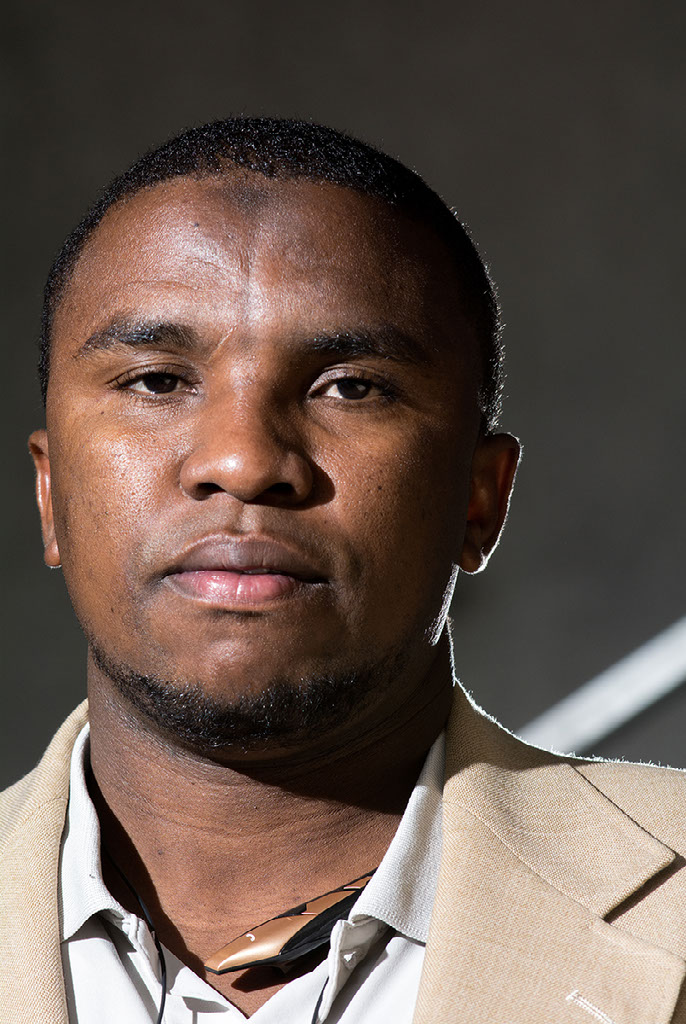When ethnic Bantus of Somalia faced genocide during the early ‘90s, 6-year-old Abdirahman Chirango escaped on foot across hundreds of miles to his country’s southwestern border. He remained in a congested refugee camp for more than a decade.
Chirango fled to Kenya in 1991 with his maternal grandmother, two aunts, younger sister, an uncle who carried his infant brother and fellow Bantu villagers in search of security amidst Somalia’s raging inter-tribal wars.
Families were forced to abandon their livelihoods because of imminent terrorization from militants who, according to Chirango, plotted to massacre his people if they stayed.
As a boy, he helplessly witnessed the murder of his mother for resisting rape and the branding of his uncle and grandmother for protecting her. Chirango numbly watched as flames engulfed their house.
“I can still see my young brother sitting next to the lifeless body of my mom, suckling her breast,” he recalled, “[and] my sister splashing in the blood of my mother.”
Following brief hesitation, Chirango continued his recollection, his 6-foot-2 frame tensing in a tidy, vintage, gray suit.
“Up to today, I can still smell the smell of burning homes,” he said.
As a minority group, Somali Bantus faced vehement persecution by majority clans with Arab roots as a result of their alleged inferiority. Their origin of ancestry comes from countries near the eastern ridge of Africa. Experts say Somali Bantus were kidnapped from Mozambique, Tanzania and Malawi by slave traders in the 19th century.
“I can still see my young brother sitting next to the lifeless body of my mom, suckling her breast, [and] my sister splashing in the blood of my mother.”
What Chirango encountered more than two decades ago plagues his childhood, thus deepening his detachment from Somalia.
“Our only hope was to go to Kenya, forget everything that happened and come back home, but it was all a fantasy,” the 32-year-old said. “It was a dream that would never come through.”
Villagers stepped over piles of their neighbors’ bodies and left empty-handed, deprived of food and water for nearly a month, relying on tree branches to combat starvation and their own urine to keep hydrated.
Though Chirango’s family survived the genocide, most did not. Of the few hundred who escaped 26 years ago, about 40 percent of the group reached Kenya.
“Parents and loved ones would have to walk away from their children because they could no longer afford to carry them,” he said.
The same militiamen from whom Chirango’s people retreated also occupied their encampment at Dagahaley Refugee Camp, regularly stealing refugees’ sparse food rations from their dirt-stained tents.
Contrary to everyone’s wishful thinking, their quality of life did not get better on the other side. In fact, Chirango said their level of subjected marginalization in Dadaab matched the degradation they faced back home.
He mentioned that women and girls who ventured into the bush for firewood were raped, whipped and sometimes dismembered. Finding riddled bodies inserted with foreign objects was a common occurrence. Teachers demanded that minority students sit on the dirt floor beneath their peers, intentionally deterring them from attending school.
Chirango’s older relatives expected the Somalian conflict to cease, making way for an eventual safe return to their homeland. Yet, they soon realized it was improbable.
In the heart of chaos, Chirango withstood physical and emotional abuse, finding clarity and empowerment through learning.

“I had a goal, which was to get educated, because the only way I could help my people in the future was with education,” Chirango said. “That was my weapon.”
Professor Orhon Myadar, from the UA School of Geography and Development, taught Chirango twice throughout the same academic year. Chirango has since finished his undergraduate degree in political science.
“Abdi has the most beautiful cursive writing; he would sit in the front row with a pressed, clean shirt,” Myadar said. “He took everything very seriously—life, classes. Everything was a priority.”
Some 1,500 Bantu migrants reside locally, according to the Somalian Bantu Association of Tucson, with assistance from the International Rescue Committee.
In addition to collaborating on the Beyond Fear: Tucson Refugees Tell Their Story project, which is inspired by Chirango’s testimony and sponsored by the UA Confluencenter for Creative Inquiry, Myadar and her colleagues are extending their campus initiative called Dismantling Fear.
“I had a goal, which was to get educated, because the only way I could help my people in the future was with education,” Chirango said. “That was my weapon.”
Migrants complete a series of United Nations and immigration interviews and undergo intensive scrutiny and medical screenings abroad before they are considered for entry into welcoming nations. It is a stringent system with no guarantees. Muridi, Chirango’s younger brother who he last saw 17 years ago, is still awaiting approval in Dadaab.
“I believe that general misunderstandings about refugees are primarily due to lack of knowledge about the refugee resettlement processes,” Myadar wrote via email. “Often, refugees are lumped along with asylum seekers and other foreign nationals who come to the country on different visa types.”
Together, Myadar and her teammates hope to utilize both projects by generating awareness, support and kindness for the Tucson refugee communities who are now moving on from their shambled pasts.
For the time being, Chirango flies across the country for business trips on behalf of his cousin’s grocery store, Safari Market, as the assistant manager. However, he plans to further his education and ultimately become an Arizona Bar-certified immigration attorney.
Chirango, whose name means “Servant of God,” regularly tutors youth on how to read the Quran in Arabic at the Islamic Center of Tucson. With five children of his own, Chirango has no intention to revisit his homeland and the lingering trauma it inflicts internally. His life may have started in Somalia, but it continues here.
“I don’t have a place in my heart for Somalia right now,” Chirango said.
http://www.wildcat.arizona.edu/arti...after-escaping-violence-in-his-native-somalia

 that is so messed up
that is so messed up


 Aren't Kenyan soldiers occupying JL " and the nigga said Kenyans are his brothers and the only reasons Kenyans came was to protect them.Then the nigga proceeded to say they want help from us Isaaqs
Aren't Kenyan soldiers occupying JL " and the nigga said Kenyans are his brothers and the only reasons Kenyans came was to protect them.Then the nigga proceeded to say they want help from us Isaaqs 

